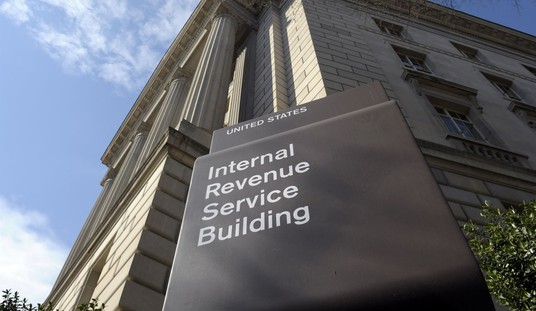After picking apart the gang bill one issue at a time, I put out a summary of all the issues with the immigration bill for The Madison Project. Here it is for those who have not seen it. Note that some of this might be subject to change after the dust settles from the 350-page manager’s amendment that was tacked onto the bill.

Enforcement/Security
- No Fence: This plan only calls for Janet Napolitano to “establish a strategy”… “to identify where fencing”… “should be deployed” before temporary legal status is granted. Any plan that doesn’t complete the 700-miles of double fencing is worthless.
- Internal Enforcement: Any plan that does not limit Obama’s prosecutorial discretion, restore the 287(g) program, ban sanctuary cities and explicitly allow states to enforce federal law and preclude the Justice Department from suing them, is worth less than the paper it is printed on. This plan does nothing to force the hand of this administration or future administrations on enforcement. In fact, on page 496, it explicitly preempts states from enforcing immigration laws.
- No real triggers: Senator Rubio keeps saying that we shouldn’t worry about Obama because he won’t be president forever. However, he and Janet Napolitano will be in charge for the most critical years of implementation. All they have to do is submit a plan to secure the border (coming from someone who already believes the border is secured) within 6 months of passage, and everyone immediately becomes eligible for legal status. Even the trigger to green cards and citizenship 10 years later is only that DHS certify they are achieving the goals of their own plan. If not, it triggers the creation of another commission to find a plan to spend more money! The recommendations of the commission will not prevent any LPR status from being granted.
E-verify and the visa tracking system don’t have to be implemented for 5 and10 years respectively. Even then, they never call for a biometric exit-entry system as currently required by law, just an electronic one and it will not be required at land ports of entry. As such, there is no way that this massive expansion in temporary work visas will ever be temporary. By the time they are processing the amnestied aliens for green cards in 10 years from now, we will have even more than 12 million illegals from those who were left on the table (ineligible from the first round of RPI status) and all those new people who overstayed their visas. Border patrol agents have already testified before Congress that illegal entries are on the rise ahead of the amnesty. That will only grow as long as we make it clear that deportations will never occur and have no tracking system to crack down on overstayed visas.
- The bill replaces E-verify, the most effective system, with some other unspecified verification system which won’t be in place for another few years (p. 503). This could potentially undercut the 350,000 employers who currently use E-verify on a voluntary basis. It also exempts day laborers from using it (p. 402), which will present a big magnet to future illegal migration. It only requires the use of verification for new employees so as to protect those here already who don’t qualify for legalization from being caught.
- Encumbering future deportations: Section 3717 places the burden upon ICE to prove that a given alien should be detained. Section 2313 of the bill offers discretion DHS and immigration judges to grant amnesty to illegals who would suffer personal hardship from being deported.
- The bill grants the Secretary of DHS waiver authority (page 12) to proceed with the LPR status after 10 years if the enforcement provisions are not implemented as a result of being enjoined by a lawsuit.
- The bill puts drastic limitations on “profiling” and discriminating against illegals both on the employer side (even though we require them to use E-verify) and the law enforcement side. This is yet another provision that invites boundless and perennial lawsuits.
Amnesty for Illegals
- Almost Immediate Amnesty: Every illegal is eligible to come forward for “Registered Provisional Immigrant” (RPI) legal status within 6 months after passing the bill once Napolitano submits a strategy plan for border security. That is the most important detail. Once the legalization begins, it will never be revoked, irrespective of the success of any promised enforcement in the future. Also, because anyone could potentially be eligible for legal status, and must be afforded a “reasonable opportunity” to come forward, it will ostensibly be impossible to deport anyone during the entire 2.5 year application process, including the new people who will inevitably come here illegally to take advantage of the liberalization.
- Background check: No government documents are required to identify these people during background checks. They can easily present documents, and there will be an entire business created to provide them with such documents (see below).
- Public Charge: Although RPI’s would not be able to constitute a public charge when they apply for green cards (however, that is defined as a paltry 125% of the poverty line), they are completely exempt from public charge when initially applying for RPI status, the most important gateway. (Section 245B(b)(3)). This legal status will also allow them to immediately collect welfare benefits in many states, which award benefits to anyone lawfully present.
- Criminals: Section 245B(3)(A) (pages 61-66) allows many criminals to get legal status. Even those violent felons excluded may be granted legal status by the Secretary for humanitarian purposes, to ensure family unity, or if such a waiver is otherwise in the public interest. Even the worst of terrorists who are excluded from this waiver, are not required to be deported. “Nothing in this paragraph may be construed to require the Secretary to commence removal proceedings against an alien.”
- Refundable Tax Credits: They have to pay back taxes owed during their stay illegally in the country. So what happens with 95% of them who, had they been legal, would have paid $2,000 in payroll taxes but netted $8,000 in refundable tax credits? What happens with such a tax return? Do they make money off the system? That point is not clear. Moreover, only those who have already been assessed by the IRS would have to pay taxes. (p. 68-69).
- Social Security: The bill would waive prosecutions of those who have used fraudulent Social Security numbers to get jobs when they were illegal, allowing them to receive Social Security benefits when they retire.
- Dream Act: The dreamers (aged 16-and above with no maximum) and the Ag workers will get immediate blanket amnesty, green cards in just 5 years, and in the case of Dream recipients, immediate citizenship. All of this is not subject to even the cloddish border triggers established for the rest of illegals. Children of illegals and Ag workers are some of the poorest immigrants, so they will become the most immediate and profound public charge. Add education costs to the Dreamers. There is also a hardship exemption to waive the requirement that they complete college. Section 2103 (page 110) of the bill repeals the ban on in-state tutiton. Also, how will this affect chain migration when 3 million new citizens could petition to bring in their families after 5 years? Moreover, spouses and children can be brought in immediately, obtain green cards in 5 years, and citizenship 5 years later. Furthermore, those who have been granted status under President Obama’s Deferred Action for Childhood Arrivals policy (DACA) could get green cards immediately.
- American-born children: Everyone born on American soil is recognized as an American citizen under current law. As such, every child born to someone in RPI status, the millions of new low-skilled legal immigrants, and the guest workers will all be American citizens and will be eligible for welfare benefits.
- Invites in Deportees: Not only will deportations be suspended for everyone here, the bill invites thousands of people who have already been deported (a spouse, parent, or child of a U.S. citizen or green card holder, or entered the country illegally before the age of 16) to come back and apply for the provisional legal status. It also allows deportation absconders to get amnesty.
- Immigrants officially have to wait 5 years upon receiving a green card to collect most welfare benefits, although it is not always enforced. Those who register for RPI amnesty status, however, will not have to wait 5 more years after receiving green cards.
- Obamacare market distortion: Ironically, in an attempt to show that the RPIs will not receive obamacare benefits, they are creating another problem – tilting the labor force towards the amnestied aliens. Employers must provide health coverage for all full-time employees or contribute $3,000 towards government coverage for that individual. Given that the RPIs will be excluded from the program, employers will be exempt. They will have a $3,000 incentive to hire those individuals over everyone else.
- Government-Sanctioned Private Advocacy and Legal Groups: Section 2106 establishes a foundation (“Grant Program to Assist Eligible Applicants”) that can easily become a government-sanctioned La Raza/ACORN group to agitate for the RPIs during the entire process. Also, Section 2537 (page 384) authorizes the Director of USCIS to award newly-created “Initial Entry, Adjustment, and Citizenship Assistance” (IEACA) grants to “eligible public or private, non-profit organizations” for the purpose of assisting RPIs with numerous aspects of legalization, such as “completing applications”, “gathering proof of identification”, “applying for any waivers” and “any other assistance.” Section 3503 (page 570) creates an Office of Legal Access Programs to provide free legal service to all illegals during deportation proceedings.
- Lawsuits: Sec. 2104 (pages 120-129) of the bill allows illegals to challenge and appeal any denial of RPI status for any reason. DHS is prohibited from deporting any illegal – including criminals – during the period of adjudication. This is another provision that ensures that no one single illegal will ever be deported. The bill opens the door for class action lawsuits, and allows judges to appoint taxpayer-funded council to represent them (p. 567) – not that there is a lack of immigration groups that will represent them for free.
Legal Immigration/Guest Workers/Future Flow
- Wage Controls: On the legal immigration side, this bill increases the number of visas exponentially for both high and low skilled immigrants. Then, in order to stave off the inevitable depressing of wages, this bill proposes new wage controls for H1-B visa workers. It even establishes an entire new agency, the Bureau of Immigration and Labor Market Research, to deal with the labor issues created by the massive new flow of low-skilled immigrants who come in on the new W visas. The inane cycle of government at work.
- Diversity Agenda: While the bill would take the positive step of eliminating the diversity visa lottery, which randomly grants 50,000 visas to many third world countries, it compounds the problem with the new regime. Under the new points system, which can work effectively when implemented properly, applicants from those countries on the diversity visa would be granted extra points, almost as much as those who hold master’s degrees.
- Prioritized H1-B Expansion: Almost all of the H1-b expansion (from 65,000 to up to 180k) comes from the base cap. The base cap is simply those who have a bachelor’s degree. We’re not talking about geniuses from MIT who are held up as posted children for our immigration problems. Yet the bill only raises the exemption for graduate degree H1-bs from 20 to 25k. That tells you this is all about importing cheaper labor for a number of “tech” jobs that are not that highly skilled as opposed to filling a much-needed vacuum.
- Defacto Permanent Guest Workers: Those Ag workers who come in on the new W visas will be able to stay for 3 years and have their visa renewed for an additional 3 years. Even if we had a visa tracking system in place, does anyone actually believe we will send them home? Yet millions of more low-wage earners who will enter the welfare state.
- Obamacare: Although the amnestied illegals in RPI status will not be eligible for obamacare, all of the new LPRs created by this bill on the legal side will be eligible immediately. The cost will be astronomical.
- Chain Migration: The same provision that grants an unlimited number of visas to family members of citizens is extended to family members of LPRs (page 280). Given that this bill creates millions of new legal and illegal LPRs, the family-based immigration would explode over the next decade. Additionally, this bill creates an entire new immigration track in addition to the current family and employment-based tracks. It also expedites all 4.5 million already “waiting in line,” without prioritizing those who actually benefit the country.
- Refugees and Asylum: This bill dramatically expands the already-abused Refugee and Asylum laws, including any “humanitarian effort” and “stateless persons.” Chechnya? Palestinians? It also allows those who were rejected to have another bite at the apple. On page 551, the bill waives the requirement that asylum applications be filed within one year of fleeing to the U.S. This will allow people who represent national security risks to linger without having to come forward.













Join the conversation as a VIP Member